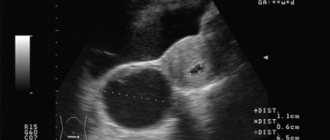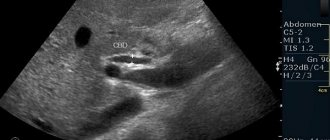Noticing vaginal discharge during pregnancy, many women panic. No wonder. After all, anxiety about one’s health is accompanied by worries about the condition of the fetus. Discharge can signal the presence of various diseases, including colpitis during pregnancy. How does this disease manifest itself, why is it dangerous for women and children, is it difficult to treat?
Etiology
Colpitis (vaginitis) is an inflammation of the vaginal mucosa. Today, approximately 70–80% of women of fertile age are familiar with this problem. It does not bypass expectant mothers either.
During pregnancy, pathology can develop against the background of hypothermia or become a consequence of experienced nervous tension. There are other reasons, for example:
- Hormonal changes in the body, which are an integral consequence of pregnancy. Against the background of hormone imbalance, the immune system weakens and allows pathogenic microorganisms to multiply unhindered.
- Violation of the vaginal microflora (bacterial vaginosis).
- Penetration of various viruses and fungi into the body. For example, fungi of the genus Candida can provoke candidiasis (or yeast) colpitis.
- Mechanical damage.
- Failure to comply with the basics of intimate hygiene.
- Frequent douching. They wash away the natural protective environment of the mucous membrane, inhibiting its protective functions.
- Long-term use of antibiotics.
- Allergies that develop due to the use of intravaginal drugs.
- Endocrine system disorders (not related to hormonal imbalances caused by pregnancy).
In some cases, colpitis during pregnancy is combined with cystitis, vulvitis, urethritis, and endocervicitis. This occurs due to the involvement of the pelvic organs in the inflammatory process. Colpitis also often develops against the background of various gynecological diseases, including thrush, trichomoniasis, genital herpes, ureplasmosis and other viral pathologies.
Diagnostic methods
The main diagnostic method is to examine the patient in a gynecological chair, listen to complaints and collect test results for anamnesis.
To prescribe the appropriate treatment, the doctor conducts an examination and takes:
- flora smear;
- culture of vaginal discharge;
- Ultrasound;
- aminotest;
- rectal examination;
- blood tests (general, biochemical, hormone tests) and PCR tests for sexually transmitted infections.
Diagnosis of colpitis All types of laboratory tests can be used (microscopic, bacteriological, cytological and pH-metry). This makes it clear which pathogenic bacterial pathogen of microbial origin or virus provoked the disease. If the pathogen is sensitive to antibiotics, then research makes it possible to select effective drugs.
Kinds
There are many types of colpitis, depending on the reasons that caused it. All of them can be combined into two groups: specific and nonspecific.
Specific infectious vaginitis
Develops under the influence of viruses transmitted through sexual contact. The disease, as a rule, manifests itself acutely and proceeds violently. Vaginal discharge is characteristic (milky white, with mucus, blood, pus). The disease is often accompanied by high fever and rashes on the body and genitals. Specific infectious vaginitis requires immediate treatment with antibiotics.
This group includes Trichomonas colpitis, the causative agent of which is the bacterium Trichomona vaginali. It is transmitted to pregnant women mainly from men during sexual intercourse. Infection through household means (through personal hygiene items) is also possible. It is characterized by foamy discharge.
Nonspecific vaginitis
More typical for pregnant women. Often the disease occurs in a chronic form, accompanied by local (vaginal) manifestations. The treatment of pathology requires an integrated approach aimed not only at eliminating uncomfortable symptoms, but also at increasing immunity.
This category includes candidal (yeast) colpitis, which is provoked by a fungus of the genus Candida. In a healthy body it is present in moderate quantities, however, under the influence of certain factors, it begins to multiply uncontrollably.
Manifestations
Colpitis during pregnancy can be accompanied by various symptoms. Their severity depends on the form of the disease. It is impossible not to notice the acute course of the disease, since the disease is accompanied by severe discomfort:
- Itching in the genital area, redness, severe swelling.
- Pain in the lower abdomen (including during sex).
- Discharge: curdled, mucous, mixed with blood and pus, with or without a foul odor.
Especially pregnant women should be alerted to strong discharge with a pungent odor, unknown color and consistency.
In the chronic form of vaginitis, the symptoms are erased and may be completely absent. Because of this, identifying the disease and prescribing treatment in a timely manner is problematic. In this case, serious complications cannot be ruled out.
During pregnancy, the most common yeast (candidal) colpitis is caused by hormonal changes in the body. It is characterized by strong curdled discharge, milky in color with a sour odor. Patients also note itching and burning in the genital area. If vaginitis spreads to the urethra, painful urination and frequent urge to urinate are common.
What is the danger?
Colpitis during pregnancy can cause discomfort to a woman. But this is not its main danger. Treatment started at the wrong time is fraught with negative consequences not only for the expectant mother, but also for the child:
- Spread of infection. Pathogenic agents and fungi that provoke pathology can affect other tissues and organs: the bladder, kidneys, uterus, causing the development of more serious diseases and complicating the course of pregnancy.
- Tissue injury. The presence of chronic colpitis is fraught with damage and rupture of the birth canal. Even with a normal birth process, ruptures and, as a consequence, the development of heavy bleeding cannot be ruled out.
- Risk of miscarriage. In the presence of inflammatory processes, the probability of spontaneous abortion increases by 20-40%.
- Development of purulent and necrotic processes after childbirth: superinfections, suppuration of sutures.
- Endometritis. If the immune system is weakened, an infectious pathogen can enter the uterus and cause inflammation of the endometrium.
- Inflammation of the appendages: ovaries and fallopian tubes with severe purulent complications.
- Infertility. It occurs due to adhesions in the reproductive organs, which leads to the inability to conceive a child.
Colpitis is especially dangerous in the last weeks before childbirth. Polyhydramnios and spontaneous abortion are possible. The progression of the disease is fraught with penetration of the virus into the amniotic fluid and infection of the fetus.
Treatment
Treatment of colpitis during pregnancy is necessary, regardless of how the disease progresses. Complex therapy certainly includes diet therapy with a limitation of pickles, smoked foods, fried foods, as well as the complete exclusion of sexual contacts for the period of treatment. If the disease is caused by sexually transmitted infections, it is necessary to treat the woman's partner.
It is important to understand that during pregnancy, treatment of colpitis does not accept any amateur activity. By prescribing medications to herself, a woman can harm not only herself, but also her unborn child.
Drugs
The main task of a doctor treating colpitis is to eliminate the causative agent of inflammation (venereal infection, fungus, staphylococcus, etc.). Since there are many causes of the disease, the choice of drugs for its treatment is also large. This:
- Antibiotics.
- Antifungal agents.
- Antiprotozoal drugs.
- Immunostimulants and immunomodulators.
The problem with treating colpitis during pregnancy is that many of the truly effective drugs are contraindicated during this period. Therefore, the doctor has to choose the least safe means, which are less effective.
Antibiotics are prescribed to pregnant women only in extreme cases. Before choosing an antibacterial drug, a woman undergoes laboratory diagnostics to determine the sensitivity of the pathogen.
The doctor decides what drugs to use to treat vaginitis during pregnancy based on the results of clinical studies. Mostly women are prescribed suppositories, creams and ointments for vaginal use:
- Terzhinan, Hexicon - successfully eliminate colpitis of various natures.
- Betadine - prescribed in the first trimester of pregnancy. It contains iodine, which in later stages can cause hyperthyroidism in a child.
- Klion-D, Neo-Pentoran forte, Metromicon Neo and other drugs based on metronidazole are recommended for trichomonas colpitis. Used after 12 weeks of pregnancy until the start of breastfeeding.
- Pimafucin - successfully cope with yeast and trichomonas colpitis.
- Nystatin – used to treat yeast infections. It is safe for pregnant women, however, it does not have a very high clinical effect.
- Vagotil – successfully neutralizes candidiasis and trichomoniasis. The drug should be used with caution, since when combined with alkaline agents, a burn to the mucous membrane is possible.
To strengthen the immune system, the doctor may prescribe general strengthening agents. They stimulate the immune system, making treatment of the disease faster and more effective.
Treatment with traditional methods
Along with the use of medications, gynecologists can recommend auxiliary therapy with herbal remedies to pregnant women. They should only be used under the supervision of a doctor, especially when douching with decoctions of medicinal plants. They wash out the natural flora from the vagina and create favorable conditions for the further spread of infection.
Most often, pregnant women are recommended to take sitz baths to relieve the symptoms of colpitis. Decoctions of plants that have wound-healing, regenerating, and anti-inflammatory properties are used: chamomile, calendula, oak bark, coltsfoot.
Colpitis during pregnancy: why does it occur and what risks does it pose to the fetus?
Colpitis is a fairly widespread inflammatory disease of the female genital area today. As we already noted in the article “Colpitis: what is it, the main causes and symptoms of the disease.” , approximately 25% of all women have encountered this disease at least once in their lives, and pregnant women are especially at risk. As previously stated,
colpitis, or vaginitis, is an infectious and inflammatory disease of the vaginal mucosa.
According to statistics, pregnant women suffer from colpitis quite often; as a rule, it occurs in 75-80% of expectant mothers, and women can get it at any stage of pregnancy. But the greatest danger to the unborn child occurs when colpitis develops in the third trimester of pregnancy.
The mechanism of development of colpitis in pregnant women.
As has long been known, pregnancy itself is a trigger for the development or exacerbation of a number of diseases, and colpitis is no exception. There can be many reasons for the development of the disease, for which the following explanations exist:
-during pregnancy, the immune system weakens, which is necessary so that the mother’s body does not perceive the fetus as a foreign dangerous antigen. Weakened immunity disrupts the natural protective barrier of the vagina, which increases the risk of developing an infectious process.
-normally, the vaginal environment is acidic, which protects against the proliferation of pathogenic microorganisms in it. During pregnancy, hormonal changes occur with a change in vaginal pH towards an alkaline environment, which creates favorable conditions for the proliferation of pathogens.
During their life, bacteria release toxins and decay products. To remove them from the body, the glands in the genital area begin to actively work, leading to the formation of copious discharge. They irritate the external genitalia, which often leads to the development of vulvovaginitis.
Causes of colpitis.
If the natural defense mechanism is disrupted, which happens quite easily during pregnancy, vaginal inflammation can occur relatively easily, since it is much easier for pathogens to settle in such conditions. In the development of colpitis, the trigger mechanism, which includes primarily:
- various fungi, including yeast (Candida albicans) - are the most common cause of colpitis in pregnant women,
-Gardnerella vaginalis,
-Trichomonas vaginalis,
- chlamydia,
-staphylococci, streptococci, Escherichia coli, enterobacteria,
-mycoplasma,
-gonococci,
-viruses can also cause colpitis, for example, pemphigus virus or human papillomavirus.
In addition to the above reasons, there are a number of factors predisposing to the development of the disease outside of pregnancy , namely:
-antibiotics that disrupt the natural bacterial colonization of the vagina,
- acute and chronic inflammatory diseases of internal organs, reducing the body’s immune defense,
-excessive hygiene of the genitals using alkaline soap, rinsing the vagina,
- estrogen deficiency,
- mechanical impact, for example, tampons, the use of a vaginal diaphragm or other foreign bodies in the vagina as contraception,
-heavy menstrual bleeding,
-metabolic diseases such as diabetes mellitus or Cushing's syndrome, obesity,
-frequent change of sexual partners,
-changes in the anatomy of the vagina (decreased tone and drooping of its walls, gaping of the genital slit),
- iron deficiency,
-operations,
-oncological process,
-genetic predisposition.
Symptoms of the disease.
The clinical picture of colpitis in pregnant women is, in principle, no different from symptoms outside pregnancy. Colpitis in most cases is limited only to the vagina and women may not always complain; in many cases the disease is asymptomatic.
If any complaints arise, a pregnant woman should definitely consult a gynecologist!
So, the following symptoms are characteristic of colpitis:
- copious vaginal discharge is the most important sign of colpitis. During the inflammatory process, a large amount of fluid is formed and secreted in the vagina, which often has an unpleasant odor. Depending on the composition, the discharge may be watery, mucous, mucopurulent, foamy, curdled or bloody. The nature of the discharge depends primarily on the causative agent of the disease:
- a mixed infection with various bacteria, which occurs in most cases, leads to yellow-green discharge,
- fungi, in particular Candida albicans, lead to a curd-like, odorless, white discharge; the woman is bothered by itching in the vagina,
- with infection with Trichomonaden, the discharge is often yellowish, foamy, women feel a burning sensation in the vagina,
- When infected with chlamydia or mycoplasma, the discharge is in most cases whitish, glassy, and odorless. The complaints are varied and not typical of any infection.
- an imbalance of vaginal microflora (bacterial vaginosis) causes fluid discharge with an unpleasant fishy odor.
-burning and itching in the vagina of a periodic or constant nature, increasing with movement and physical activity,
- aching and nagging pain in the lower abdomen , radiating to the hips or lower back - the main difference between colpitis during pregnancy,
- acne (due to infection with pemphigus virus),
- itching and burning when urinating,
-swelling and redness of the external genitalia with the development of vulvovaginitis, and sometimes the inner surface of the thighs and buttocks,
- bleeding - develops as a result of destruction of the epithelial surface of the cervix and the formation of erosion with copious discharge.
Diagnosis of the disease.
As with acute colpitis outside pregnancy, the diagnosis of colpitis in pregnant women is not fundamentally different:
1. Questioning the patient: the doctor finds out the complaints, their nature, when they first appeared, whether they were before, before they tried to treat, whether there were sexual intercourses before, the day of the last menstruation, its regularity and abundance, gestational age, whether there were surgical interventions shortly before the onset symptoms of the disease, whether they took any medications, whether there are any allergic reactions, what other diseases the patient suffers from.
2. Examination of the patient: two-handed vaginal examination and examination in the speculum, which is usually quite painful with colpitis. Upon examination in case of acute colpitis, the doctor discovers reddened, swollen vaginal mucosa, the folds are loose, swollen and thickened, covered with serous or purulent films. When you touch and try to remove plaque, the mucous membrane is damaged and may bleed; in severe cases, it is eroded. In addition, in most cases, women experience heavy discharge, the color, smell and consistency of which can make it clear which pathogen underlies the development of the disease. In chronic colpitis, changes in the vaginal mucosa are poorly expressed, and the discharge is scanty. If vulvovaginitis develops, swelling and redness of the external genitalia and sometimes the inner thighs will be noted.
Also, during the examination, the doctor evaluates the condition of the external genitalia, the presence of acne, condylomas, etc.
3. Laboratory and instrumental research methods:
-bacteriological examination and bacterial culture of smears from the vagina and cervix in order to determine the causative agent of the disease, its sensitivity to antibiotics,
- microscopy of a smear from the vagina, cervix and urethra: with colpitis there is an increase in the number of leukocytes (30-60 in the field of view when the norm is up to 15), the appearance of foreign microflora (3-4 degree of purity), desquamated epithelial cells in large numbers, a decrease in the number lactobacilli.
-cytological examination of smears to exclude an oncological process,
-ultrasound examination of the uterus and fetus: allows you to determine the presence/absence of concomitant pathology of the uterus and appendages. It also allows you to identify or exclude the threat of miscarriage, delayed fetal development or the presence of feto-placental insufficiency.
-colposcopy: examination of the vagina and cervix using a colposcope apparatus. This method allows you to assess the nature of changes in the mucous membrane of the vagina and cervix and make the correct diagnosis. During pregnancy, it is performed according to strict indications.
Treatment of colpitis.
When treating colpitis, therapy depends primarily on which pathogen is responsible for the development of the disease.
Colpitis during pregnancy must be treated regardless of the fetal age, since any delay or lack of treatment can cause serious complications.
All treatment is selected by the doctor based on the clinical picture of the disease and laboratory data obtained. For colpitis in pregnant women, topical medications are most often prescribed, since they are safer for the fetus:
— Terzhinan is prescribed in the form of vaginal tablets, 1 before bedtime, the course of treatment is 10 days. Before administration, the tablet must be kept in water for 30 seconds to wet it. It contains ternidazole, nystatin, neomycin and prednisolone, thereby having an antimicrobial effect, in particular effective against gardnerella and trichomonas, an antifungal effect, and also has an anti-inflammatory effect.
-Pimafucin -vaginal suppositories, 1 at night before bedtime for 3-6 days, are most effective for fungal infections.
-Hexicon - 1 suppository 2 times a day for 7-10 days. It has an antiseptic effect due to the active substance chlorhexidine.
-Metromicon-neo (Klion-D) is a combined drug based on metronidazole and miconazole, which has an antimicrobial and antifungal effect. Prescribed 1 suppository 1-2 times a day for 7 days.
-Betadine is used in the first trimester up to 12 weeks of pregnancy, since iodine, which is part of the drug, can have a negative effect on the development of the glands of the endocrine system, in particular the thyroid gland. Prescribed 1 suppository 1-2 times a day for 7 days.
-Polygynax is acceptable for use at the end of pregnancy, immediately before childbirth. Contains neomycin, polymyxin B and nystatin, thereby providing antibacterial and antifungal effects. Prescribed 1 capsule 1 time per day for 12 days.
-Vagotil is a polycresulene-based drug that has a bactericidal effect. A tampon moistened with the solution is placed in the vagina for 1-3 minutes, after which it is removed.
- in order to restore the normal microflora of the vagina, in addition to the main treatment, drugs containing lactobacilli or bifidobacteria ( probiotics ) are prescribed in the form of suppositories or powders: Acylak, Bioselac, Bifikol, Vapigel, Lactogel, Lactobacterin, Bifidumbacterin.
-It is also effective, instead of douching during pregnancy, to irrigate the external genitalia with a decoction or infusion of medicinal herbs (chamomile, calendula, St. John's wort), as well as medicinal sitz baths. The course of treatment is 7-14 days.
Why is colpitis dangerous during pregnancy?
Like any infectious-inflammatory disease, colpitis during pregnancy can lead to the development of serious complications for the mother and her unborn child:
-ascending infection with the development of an inflammatory process in the uterine cavity, fallopian tubes, ovaries, kidneys and bladder.
-threat of miscarriage - with colpitis the risk is 20-40%,
-tissue ruptures during childbirth with the development of severe bleeding are especially characteristic of the chronic course of the disease, since inflamed and swollen tissues are most susceptible to injury.
-purulent inflammatory process with tissue necrosis after childbirth,
-infection of amniotic fluid and placenta occurs due to the penetration of the pathogen through the cervix and nearby structures. As a result, chorioamnionitis may develop with functional disorders in the fetal body as a consequence.
-feto-placental insufficiency - infection of the placenta reduces its functioning, which ultimately leads to disruption of the delivery of oxygen and nutrients to the fetus.
-infection of the fetus is a serious complication that can lead to its intrauterine death. If this does not happen, then the fetus may develop pneumonia, pyoderma, etc. In addition, the risk of delayed psychomotor development of the child in the future and decreased immunity significantly increases.
As you can see, colpitis is a rather dangerous infectious and inflammatory disease, extremely undesirable for a pregnant woman. Therefore, under no circumstances should the disease be left to chance, but you should immediately consult a doctor when the first symptoms of the disease appear.
It must be remembered that any delay can harm the health of the mother and her unborn child!
Take care of yourself and be healthy!
Prevention measures
The main method of preventing colpitis is maintaining hygiene of the body and genitals, which includes:
- Wash your genitals at least twice a day (morning and evening).
- Wearing only clean and carefully ironed underwear.
- Use only your own hygiene products (towels, etc.).
It is recommended to use a condom during sex; casual sex is highly undesirable.
A woman should be treated in advance for pathologies of the reproductive system, as they can weaken the immune system and contribute to the development of colpitis during pregnancy. Common preventive methods are:
- Hardening.
- Taking vitamin-mineral complexes.
- Regular examinations with a gynecologist.
- Refusal of synthetic underwear.
- Refusal of tight clothing.
Any disease without proper treatment is fraught with undesirable consequences. At the first symptoms of colpitis, a pregnant woman should consult a gynecologist, because she is responsible not only for her life.
How to avoid getting sick
As with any disease, in order to avoid the need for treatment, it is better to use prevention. And colpitis is no exception.
To prevent this disease from occurring during pregnancy, it is necessary to promptly screen for sexually transmitted infections. It is advisable to do this when planning a pregnancy. It is also worth carrying out timely treatment of existing chronic diseases.
When planning pregnancy, it is recommended to strengthen your immune system with a balanced diet or multivitamins prescribed by your doctor.
It is also important to adhere to the rules of personal hygiene throughout the entire period, not to use other people’s things and intimate hygiene products. And also wear underwear only made from natural fabrics.










